Part One of this blog post was focused on helping witnesses. (You can read it here.) However, this new piece is all about the lawyers. If you haven’t had your first Zoom depo yet, it’s likely coming. The wave began with COVID-19, but the cost and calendaring benefits mean video conference depos are here to stay. Beware… Zoom depos can completely throw you off your game. Why?
Here are 6 skills that you (the lawyer) might want to consider before your next Zoom Depo… 1. Silence is NOT golden in video conference depositions. An old psychological trick for taking deposition testimony is to go silent and allow the witness to fill the vacuum. That does NOT work well in Zoom depos because the witness is sitting in a room (possibly alone… possibly their home) many miles away. Why is it different? The pressure to fill silent pauses with words is a socially induced anxiety that is tied to in-person conversations. Three people sitting in a room with no one talking is awkward after 4 to 6 seconds. It is most awkward for the person who is supposed to be talking (the witness). Video conference testimony removes much of that pressure. We are all accustomed to long silences in Zoom meetings due to technical issues or the desire not to speak over one another. Silence will actually allow the witness valuable time to formulate well-crafted responses (rather than feeling pressure to fill the vacuum). 2. The easy stuff (i.e. handing an exhibit to a witness) just got hard. You are not going to be able to slide a piece of paper across the table. How are you going to share documents? How are they going to view them? What will your screen look like when you are questioning them about the document? Will you still be able to see the witness? I suggest you consider two monitors on an extended desktop… one for screen sharing and one for video conference boxes and privileged documents. REMEMBER TO TEST THIS SYSTEM AHEAD OF TIME! You don’t want to share the wrong screen and have something confidential broadcasting to the witness and the other side. Where is the transcription coming from? It’s typically best to have the person in the room with the witness, but this is a Zoom depo, so the rules of the game have changed. Planning and testing are vital, but ALSO have a backup plan if the tech fails. Those protecting the witness will want to continue the deposition on the phone. Those doing the questioning will want to reschedule for more video time. It might be best to lock that down before you are staring at a frozen screen. 3. Speak clearly, loudly and early… or you might lose your chance. If you want make objections to protect your witness, you need to do it quickly and clearly. It might be annoying to opposing counsel, but speaking over each other is a completely different animal in video conference depos. Some systems may mute out other voices when one person is speaking. Or, you may be unlucky enough to object when you have a weak connection. In the case of Zoom trial testimony, understand that controlling the witness is going to be MUCH more difficult. For cross-examination, this means carefully planned questions that elicit carefully planned (and short) answers. For direct, be ready to use visual signals (like waving a hand) along with the verbal objection to mark when you are objecting. Most importantly… don’t give up. If no one responds because you are muted by the system or in a moment of video glitch… keep trying. Some people will feel a psychological desire to just accept the missed opportunity and move on since the witness has started answering, but you must fight that impulse and get the objection in. 4. Don’t skimp on your internet package. The majority of residential internet grids are being pushed to the max these days. The bigger your hose… the more water comes in and out. It’s worth paying for an upgrade to your internet speed AND your Wi-Fi router (aka, the faucet). What you see is controlled by your download speed. What you broadcast and send is your upload. Downloads are MUCH faster because most of us would only upload small packages. Now, all your neighbors are sending massive HD video (Facetime, Zoom, Duo, GoToMeeting, etc.) up the hose. The system was not originally designed for that. Also remember that bandwidth is a shared commodity within your system by every other device using the same Wi-Fi signal. If you are broadcasting from home and have TVs/phones/tablets showing 4k Netflix movies to your kids in other rooms, expect that to eat up bandwidth. Zoom depo lag times are real. Worse still, an unethical witness could utilize a choppy connection to avoid answering questions or kill your flow (even if the question wasn’t that choppy). All of this suggests that it’s worth spending a little extra to get that fast internet package and Wi-Fi router. You can go to Ookla to test your current speed. 5. Pressure is now MUCH MORE about pace… be prepared. Witnesses’ sympathetic nervous systems (fight or flight response) will engage to varying degrees in any kind of testimony. It’s a stress response that we all regularly engage when we are anxious. However, it is much stronger in face-to-face encounters (rather than Zoom calls). This is important because the sympathetic nervous system is the top reason that witnesses have difficulty hiding the truth. This biological/psychological stress unmasks deception cues and makes lying/evading much more difficult. Be aware that you will have lost a lot of this questioning advantage in a video conference depo or testimony. Thus, you will need to work harder to re-create that pressure through carefully planned questions that can be unleashed in rapid fire when the time is right. This is not to suggest you be a robot who reads a phone book of scripted questions in quick succession. I’m suggesting you have the three KNOWS: 1) Know your case; 2) Know what you need to get; 3) Know the pathways to get it (especially groups of short questions that can be deployed rapidly). If you have these in your brain and in an outline, you can re-create some of the pressure that Zoom depos have taken away. 6. Consider opening with shock and awe. If a witness is planning on evading or being untruthful, they will be most vulnerable at a few key points in the deposition: 1) When they are tired; 2) When they are stressed due to a series of difficult questions; and 3) At the very beginning. Wait? At the very beginning? Yep. Their emotions will likely be running high and they will be anxious. Here are a few possible reasons:
As an aside, I would also warn you to keep emotions more in-check. You are ALSO on camera and being videotaped. In Hollywood, passionate exchanges are carefully blocked and scripted. In Zoom depos, you are off-the-cuff with questionable lighting and camera. Ramping up emotions in your video conference risks making you look a little nutty. BONUS TIP: Don’t take notes. Multitasking is a myth. Our brains can’t split attention, it just goes back and forth really fast… resulting in poorer performance in both tasks. The deposition is all on video that you can re-watch. Taking notes forces your brain to leave the examination to go to your notes page and then return to the examination. You need to be listening and thinking… notes can be done later. You can learn about our CYBER WITNESS PREP that is conducted via webcam (rather than in-person) HERE. WHO IS THE AUTHOR? Matt McCusker is the founder of Convince, LLC and LitPredict. He is an internationally known Litigation Consultant with a strong history of success utilizing unique cognitive psychology techniques for prepping witnesses and developing case strategy. Matt has served as a source for many media outlets (Wall Street Journal, CNN, LA Times, etc.) and taught Witness Prep for CLEs and professional conferences nationwide (DRI, ABA, law schools, etc.).
0 Comments
As a Litigation Consultant, I’ve been prepping witnesses across the country for many years. I’ve spent countless hours analyzing witness behavior and psychology in CONTROLLED deposition and trial environments… then came COVID-19. In 2020, I’ve had to up my game and think deeply about how witness prep must change for people testifying from their home or office. Zoom depos are becoming much more common and they are likely here to stay. You can learn about our CYBER WITNESS PREP that is conducted via webcam (rather than in-person) HERE. A Camera is a Camera, What's the Difference? In-person video depositions have been around for many years, but webcam depositions (having the witness at home or in their office) have only recently seen a surge in popularity due to COVID-19. Given the cost and time benefits, don’t expect Zoom depos to disappear with the virus. Crucially, webcam depositions are being recorded and may be played for your trier of fact. A huge portion of human communication exists in the visual elements of the speaker. Thus, you really need witnesses to perform effectively, look good and present as visually credible. While both of these deposition-styles involve cameras, the witness experience (and many potential pitfalls) are worlds apart. IN-PERSON VIDEO DEPOSITIONS (THE GOOD)
WEBCAM DEPOSITIONS (THE BAD)
Here are 6 skills (which don’t require buying anything) to help your witness at the next Zoom Depo… 1. Look Me in the Eye Appearance matters when determining credibility. Up-angle shots (camera below your eye line) are very unflattering. It forces a double-chin and highlights our nose hairs. If using a detached webcam, place it ON CENTER at or slightly above your seated eye level. If using a laptop, put some books under it to raise the camera… the witness won’t be typing while testifying anyway. Additionally, place the camera so a person’s head and shoulders are framed. Many witnesses fidget, so it’s not a bad idea to leave their hands off-camera. 2. Lighting Matters Scary movies are effective because they create a feeling of uncertainty with dark lighting. Don’t let your depo become a horror show. More lighting is better. In a perfect world, you would have 3 lights: left, right and down light (desk lamps and ceiling fixtures will work). However, simply getting lots of light should help the witness avoid looking evil on camera. Also, avoid any bright lighting from behind… like the sun. Windows with direct sunlight near the witness (especially from behind) can cast a not-so-angelic hue across the screen. Speaking of visuals... avoid any bright colors or patterns. If you have ever done a TV appearance, they may warn you against stripes or complex patterns because cameras can have difficulty with them and it looks almost animated. 3. Embrace the Silence Most people are uncomfortable with silence in social settings. However, Zoom depos can be filled with bouts of silence due to technical reasons (internet lag) and strategic design (opposing counsel lag). Witnesses must be taught to embrace silence and not feel the need to fill the vacuum. This is challenging when you are the star of the show. Psychological research has shown that it is much easier to REPLACE a behavior ("Do this."), rather than DELETE a behavior ("Don't do that!"). One option is to help witnesses understand that silence is their shield and their sword.
4. Eliminate Background Distractions (Auditory AND Visual) This is a deposition, not a YouTube channel. Boring is better. A plain wall (maybe a non-descript painting or a plant) is all you want. Here are a few things to avoid:
5. Don't Forget Foreground Distractions We forget that every camera shot also has a foreground. This area of the shot can even be MORE distracting.
6. Practice Objections with Them One of the hardest things for witnesses to remember is to NOT get into conversation mode. It’s question… answer… question… answer... question... answer. Zoom calls can sometimes make it more difficult for attorneys to jump in and make objections because people may talk over one another. We all know, if the witness has started an answer, you can't stop them... even if your objection was muted out. The best method of getting witnesses ready for objections is to practice them. They need to see what it feels like to have a question… take a beat… hear an objection… wait for instruction… give an answer. It's not natural. FINAL NOTE on Part Two Attorneys also have to adjust the age of Zoom depos. Just ask the lawyer who recently made news doing a deposition with no pants. Further, those attorneys who pursue a more aggressive style in deposition testimony may find their pressure less effective from a thousand miles away while trapped in a little box on a screen. There are methods to psychologically counteract the Zoom effect for attorneys, but I will save those nuggets of wisdom for PART TWO. You can learn about our CYBER WITNESS PREP that is conducted via webcam (rather than in-person) HERE. WHO IS THE AUTHOR? Matt McCusker is the founder of Convince, LLC and LitPredict. He is an internationally known Litigation Consultant with a strong history of success utilizing unique cognitive psychology techniques for prepping witnesses and developing case strategy. Matt has served as a source for many media outlets (Wall Street Journal, CNN, LA Times, etc.) and taught Witness Prep for CLEs and professional conferences nationwide (DRI, ABA, law schools, etc.).
Attorneys are hired for a multitude of reasons, but if network TV has taught us anything, it’s that great lawyers have great instincts. Of course, TV also taught us that cases always go to trial (really quickly) and always end very dramatically. Lawyers sell their knowledge and their ability to access and produce more knowledge. Thus, the field of law is very susceptible to knowledge-related cognitive glitches. To compound this vulnerability, some attorneys (not naming names) have SLIGHT difficulty considering alternative perspectives. We are what we remember. In the year Y2K (that’s the year 2000 for younger millennials), Malcolm Gladwell published a groundbreaking book called The Tipping Point which explored how ideas can spread like epidemics. Its popularity was massive and two brothers (Chip and Dan Heath) picked up the ball and explored one aspect of Gladwell’s work: the concept of stickiness. In 2006, they published an amazing book called Made to Stick that tried to pin down exactly what makes ideas sticky. In that book, the Heath brothers put a twist on a cognitive bias called the Curse of Knowledge. This is a concept that dates back to economic research in the 1970’s. Specifically, the Heaths wrote: “The Curse of Knowledge says that when we are given knowledge, IT IS IMPOSSIBLE to imagine what it’s like to LACK that knowledge.” I think of it like this: We forget things all the time. However, we can’t decide to un-know something. We are what we unconsciously choose to remember. Our brains are unbelievably complex computers, but they are not perfect. They tend to overvalue memories that have emotional significance (and then assume these are predictive examples). This is great for experiments like putting your hand on a hot stove, but not so good for looser correlations like using a particular legal strategy that worked on a big case one time. (Remember, that's a sample size of one!) Further, the Availability Heuristic suggests that what comes to mind quickly is deemed more significant to us. Thus, our analysis of things is often dominated by our recent experiences (especially the really good and really bad ones). This is not a very methodical (or effective) way to make predictive choices. Worse still, various smart people will have very different recent life experiences and often come to very dissimilar assessments of the same situation. When analysis is driven by the Curse of Knowledge, it’s tough to find consistency. A guide on how to protect WWII bomber planes. Abraham Wald was a brilliant mathematician from the early 20th century. At the age of 36, he found himself in unfortunate circumstances: 1) Hungarian; 2) Jewish; and 3) Living in 1938 Austria. Not surprisingly, Mr. Wald fled to the U.S. and began working for the “Manhattan Project for Mathematicians” called the US Statistical Research Group or SRG. The SRG famously utilized Mathematics to try and solve military issues… like how to protect U.S. bomber planes. The problem was that extra armor on these giant planes would burn more fuel, reduce speed and hurt maneuverability. So, the US Navy had to be judicious in adding thick protection. In a scientific effort to help, they catalogued the bullet holes on planes and used this as a guide for where to reinforce the aircraft. It was obvious, add armor where the planes are being shot. Easy peazy. Fortunately, Abraham Wald completely disagreed with the military’s armor strategy. He analyzed the patterns and said they should PUT THE ARMOR WHERE THE BULLET HOLES AREN’T. Huh? Mr. Wald realized that these catalogued planes were aircraft that survived. This suggested that taking fire in any of these spots would NOT bring a plane down. However, he noticed that no plane had returned with bullet holes in the engines. Clearly, this is where the armor would be most valuable. Embrace Challenges to your Brain. Mr. Wald approached the problem with a completely different Curse of Knowledge from his engineer and pilot counterparts. They had a very “plug the leak” form of processing. He was more data-driven towards cause and effect. Both were valuable insights, but Wald's solution was better. Too often, we immediately reject alternative perspectives because "they don't know as much as we do." In reality, that lack of your knowledge may be their greatest strength. We need only be willing to quiet our instincts and listen. Who is the Author? Convince,LLC and www.LitPredict.com founder Matt McCusker, MA is a nationally-known Litigation and former President of the American Society of Trial Consultants (ASTC). He has utilized his background in I/O Psychology to provide innovative solutions for legal teams and Fortune 500 corporations around the world.
Matt has served as a source for many media outlets (the Wall Street Journal, CNN, “This American Life with Ira Glass”, the Chicago Tribune, and more). He is available to teach/present about the crossroads of psychology and litigation at law schools, professional organizations and conferences.
We have nothing to fear, but everything. Sure, we’ve all heard of the magic win-win unicorn settlement that was uncovered through collaborative mediation (often capped with a joint-rendition of We Are the World). However, even the rosiest of Neutrals will tell you that parties typically settle because they are afraid of what NOT settling might look like. It’s no surprise to us in the land of headshrinkers. Two cognitive psychologists (Kahneman and Tversky) won a Nobel Prize in Economics for their theory of risk analysis called Prospect Theory. In a laymen’s nutshell, these gents showed that human beings value LOSS about TWICE AS MUCH as they value GAIN when measuring risk in a decision. (Our future robot overlords will likely take great advantage of this glitch in our decision-making.) The evolution of our aversion to loss. This loss aversion is likely an evolutionary holdover. For ancient Homo sapiens, being cautious was a much better choice than going for the gusto. Remember, these were times when a bad case of pink eye could leave you at death’s door.
Winning is all about frame of reference. Research has demonstrated that the two most satisfied athletes on an Olympic podium are the Gold medalist (Duh.) and the Bronze medalist (Huh?). The Bronze winner is thinking about how close he/she came to NOT standing on the podium, while the Silver medalist is thinking about how close he/she came to winning the Gold. WINNING a case at trial or arbitration is a natural high filled with gratitude and adulation. Sadly, the intoxication of winning is generally a temporary condition. LOSING a case at trial or arbitration is painful. Moreover, it comes with long-term discomfort, like:
SETTLEMENT kills your chance of getting that winner's high, but it also removes some of the most emotionally painful outcomes off the list. Thus, settlement kinda feels like a win (in a kissing-your-sister sort of way):
Should we all just gird up our loins for battle? The lesson from this is NOT to silence your evolutionary instincts and fight every fight. In fact, settlement is frequently the right call after a regimented and careful risk analysis. However, we must also realize that we are all human beings walking around with human brains (most of us, anyway). Thus, lawyers and clients are highly-vulnerable to amplifying their fears of loss (just like soldiers, waitresses, IT managers, and everyone else on the planet). Loss will always feel much bigger than gain. You can’t flip a switch and change that in your mind. The only way to mitigate this predisposition is to:
By taking these steps, you are much more likely to settle a case because it’s the best course of legal action… NOT to simply scratch an evolutionary itch. Who is the Author? Convince,LLC and www.LitPredict.com founder Matt McCusker, MA is a nationally-known Litigation and former President of the American Society of Trial Consultants (ASTC). He has utilized his background in I/O Psychology to provide innovative solutions for legal teams and Fortune 500 corporations around the world.
Matt has served as a source for many media outlets (the Wall Street Journal, CNN, “This American Life with Ira Glass”, the Chicago Tribune, and more). He is available to teach/present about the crossroads of psychology and litigation at law schools, professional organizations and conferences.
Often, the most successful innovations are evolutions of existing ideas, rather than reinventions of the mousetrap. For example, this 1883 reinvention of the mousetrap did not catch on. A great example of game-changing, evolutionary innovation came in 2008 when Plum invented the “Baby Food Pouch.” They merged Gerber’s individually jarred baby food (invented 1927) and the Capri Sun juice pouch (invented 1969) to create one of the greatest inventions ever designed. (As the father an 18-month old, I stand by that statement.) I will not spend time bemoaning the slow adoption of LegalTech in the world of litigation… wait, I guess I just did. I know it’s easy to complain, but it does no good to blame the customer for not buying the product. Instead, as the psychology-guy who lives in the world of law, I’m much more interested in the “Why.” Legal Technophobia is a real thing… I Googled it AND I see it in Twitter feeds. ‘Nuff said. It seems to be rooted in lawyers through a few clearly reasonable thought processes:
Maybe I should just stop writing now and go wallow in a dark room with a pile of sin tax products? No! I will maintain hope and tell you why. While the law has a string of speed bumps in its road to innovation… many other sectors of the world do not. How many old-school lawyers fought digital documents? And email? And texting? And doing business through smart phones? INMHO (In My Humble Opinion- if any old-school lawyers are reading this), Legal Technophobia will be conquered by gradual innovations in our clients’ non-legal lives that sneakily open lawyer eyes to the valuable possibilities LegalTech holds. In this vein, I offer the following suggestions to my fellow LegalTech entrepreneurs:
Who is the Author? Convince,LLC and www.LitPredict.com founder Matt McCusker, MA is a nationally-known Litigation and former President of the American Society of Trial Consultants (ASTC). He has utilized his background in I/O Psychology to provide innovative solutions for legal teams and Fortune 500 corporations around the world.
Matt has served as a source for many media outlets (the Wall Street Journal, CNN, “This American Life with Ira Glass”, the Chicago Tribune, and more). He is available to teach/present about the crossroads of psychology and litigation at law schools, professional organizations and conferences.
We hear it all the time… “There is less than a 2% chance that your case will be decided by a jury!” Still, how many of us REALLY understand what that means? The Answer: not too many. “Less than a 2% chance” is unlikely. Not just a little unlikely, it’s super-duper unlikely. However, we human beings have difficulty perceiving odds and percentages when the outcomes can have a significant impact on our lives. This is driven by a range of cognitive biases that influence our ability to predict the future. For example, you have about a 2% chance to draw the 7 of Clubs on a single pull from a deck of cards. Think about this for a moment. One pull... One card... 52 options. Imagine that I present you with a full deck of cards, face-down on the table. You have ONE chance to pick a card and you MUST pick the 7 of Clubs. Does that feel likely? Not really, huh? Now, what if I say you must pick one card from the deck and it CANNOT be the 10 of Diamonds. If you pick the 10 of Diamonds something REALLY BAD will happen. Does that bizarrely feel more likely than the 7 of Clubs? It does to most people. When self-interest accompanies an outcome, our (already poor) ability to comprehend statistics gets much worse. Americans have about a 2% chance of contracting kidney cancer. If you know someone with kidney cancer (I'm sorry), that number likely feels off. If you don’t, it likely feels about right or high. Either way, it doesn't change the fact that 2% is REALLY unlikely. Imagine if you went in to your physician’s office feeling fatigued and your doc replied: “Well, it could be a lot of things, but you DO have a 2% chance of kidney cancer. So, we should setup a kidney cancer treatment plan for you and you should be prepared for chemotherapy and targeted radiation.” Personally, I would immediately walk out (and probably report the doctor for potential malpractice.) Yet, legal decision-making is often based on a jury verdict being a LIKELY outcome (or at least NOT UNLIKELY). The potential costs of a trial are calculated into settlements. The fear of runaway juries impacts litigation strategy. The unpredictable (and memorable) jury verdict hangs above litigants like the Sword of Damocles. Only, instead of a horse hair, it is secretly being held by a really sturdy rope (98% strong). When predicting litigation outcomes, it is VERY difficult to silence our emotions and internal psychological mechanisms. The McDonald's coffee verdict is quietly swimming in the background. The only hope is to truly step back and think about the percentages. Most humans operate on intuitive statistics, which explains why lotteries exist. If you want to avoid falling prey to the curse of numbers, take away their power. Who is the Author? Convince,LLC and www.LitPredict.com founder Matt McCusker, MA is a nationally-known Litigation and former President of the American Society of Trial Consultants (ASTC). He has utilized his background in I/O Psychology to provide innovative solutions for legal teams and Fortune 500 corporations around the world.
Matt has served as a source for many media outlets (the Wall Street Journal, CNN, “This American Life with Ira Glass”, the Chicago Tribune, and more). He is available to teach/present about the crossroads of psychology and litigation at law schools, professional organizations and conferences. Contact him at [email protected] or 704.754.8699
It's hard to admit, but the legal industry is the lonely caboose at the rear of the tech train. I’ve often said that if you put a 19th century surgeon in a 21st century operating room, the poor soul would run out the door screaming “WITCHES! They’re all witches!” However, if you stuck a 19th century attorney in a 21st century courtroom, the intrepid counsel would simply ask for the latest case law and get to work. Industries ranging from furniture production to public safety to adult “entertainment” have embraced the efficiency, accuracy and productivity of technological innovation. Yet, when it comes to the legal world, we see 10 deep scratch marks in a mahogany conference table where an old school lawyer’s fingernails have tightly grasped tradition. Why So Slow? I submit a theory of three primary culprits which are inhibiting legal innovation:
POTENTIAL ENERGY: I Could'a Been a Contender. Q: What’s another word for an unexploded bomb? A: A paperweight. Sure, a bomb COULD blow you to smithereens. However, it sits as potential energy. LegalTech could permanently alter the world of law as we know it, but we only see broad-based adoption in few precious areas (e-discovery, billing management,… did I mention e-discovery?). When it comes to LegalTech adoption, decision-makers are often caught in a frozen state. Even if they are enthusiastic supporters of change, the bureaucracy around them blows the cold wind of resistance. Who wants to stick their neck out for “efficiency”? (Not a very sexy cause célèbre.) KINETIC ENERGY: Like a Rolling Stone. Depressed yet? Well, turn those frowns upside down. In the immortal words of Bluto from Animal House, “Nothing is over until we decide it is! Was it over when the Germans bombed Pearl Harbor? Hell no!” While an object at rest tends to stay at rest, it’s hard to deny that the LegalTech rock has begun to roll. We see new conferences, organizations, products and technology. We see entire sections of publications devoted to legal innovation. We see buzz. The great thing about buzz, is that it creates an invisible social pressure called FOMO (Fear Of Missing Out, as the kids say). This brings me to this CALL TO ACTION, dear reader… Help your fellow LegalTech entrepreneurs by building their buzz too. To keep this ball rolling, we need adoption of innovative ideas across the legal spectrum. The veneer has been cracked, but all sorts of technologies must wiggle in to help widen the gap. Change is contagious (look at every revolution… ever.). We have the unenviable task of creating a new normal. This will only happen with a constant and collective push. Tweet, share, speak, blast, spread. To quote Bluto again, “Who’s with me? Let’s go!” (Then he runs out the door alone.) Who is the Author?Convince,LLC and www.LitPredict.com founder Matt McCusker, MA is a nationally-known Litigation and former President of the American Society of Trial Consultants (ASTC). He has utilized his background in I/O Psychology to provide innovative solutions for legal teams and Fortune 500 corporations around the world.
Matt has served as a source for many media outlets (the Wall Street Journal, CNN, “This American Life with Ira Glass”, the Chicago Tribune, and more). He is available to teach/present about the crossroads of psychology and litigation at law schools, professional organizations and conferences. |
Matt McCusker
Musings on the state of the legal world by the Convince,LLC founder. Archives
September 2020
Categories
All
|
"Litigation is persuasion. Persuasion happens in the brain, not in the brief."
- Matt McCusker, Convince founder
Convince, LLC
9789 Charlotte Highway / Ste 400 / #160 / Fort Mill / SC / 29707
[email protected]
(704) 774-9590
All content TM Convince, LLC © 2011.
- Matt McCusker, Convince founder
Convince, LLC
9789 Charlotte Highway / Ste 400 / #160 / Fort Mill / SC / 29707
[email protected]
(704) 774-9590
All content TM Convince, LLC © 2011.

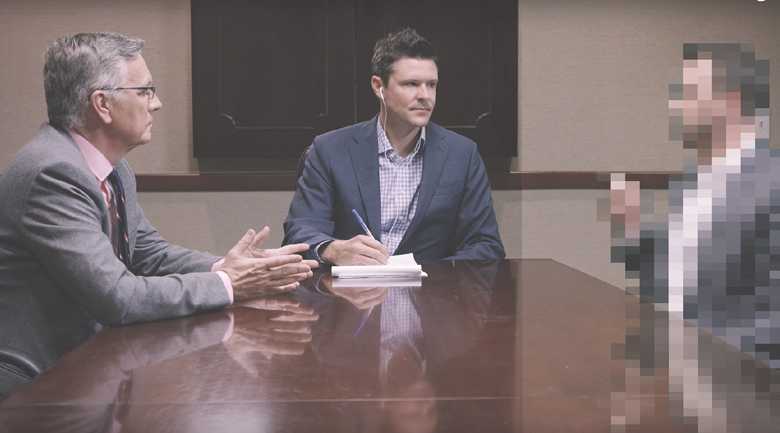


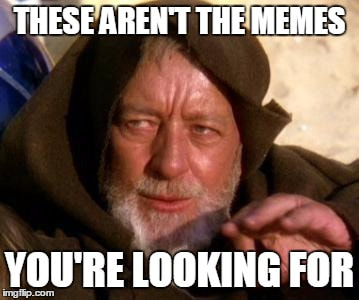
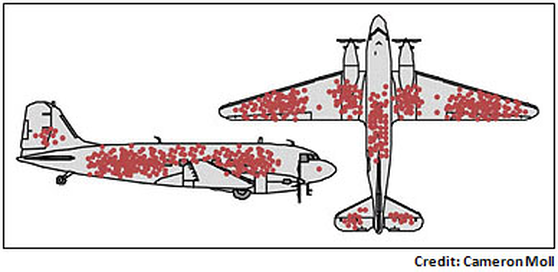
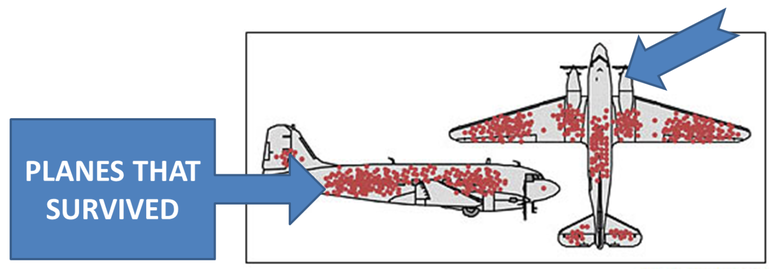
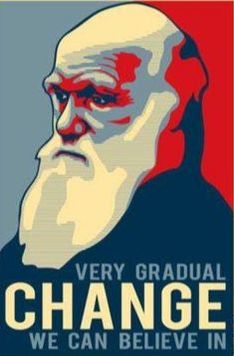
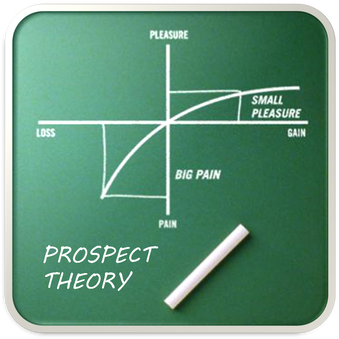
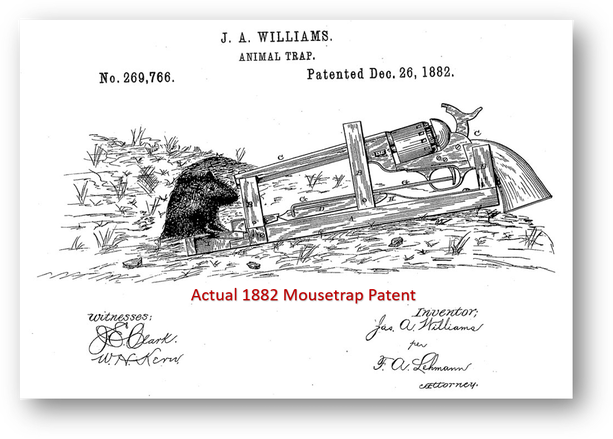
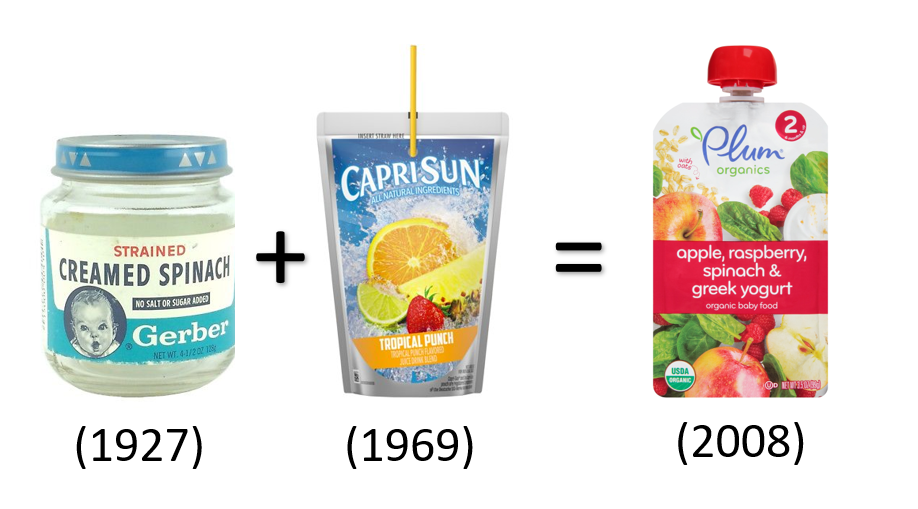

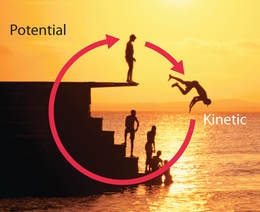
 RSS Feed
RSS Feed